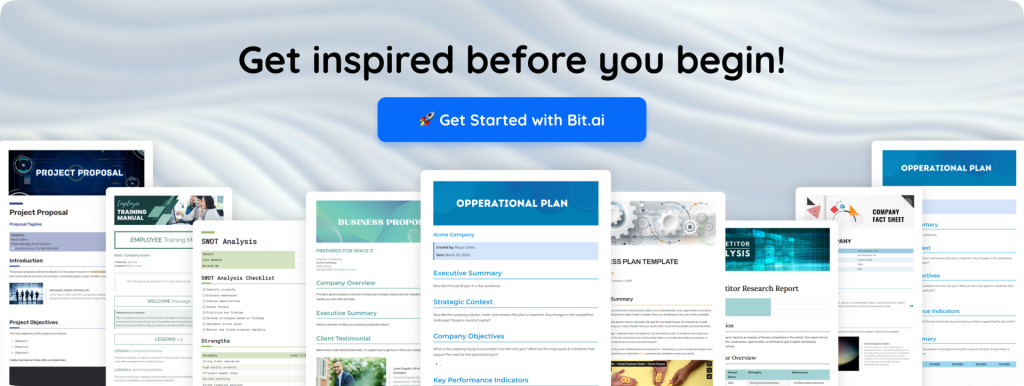Have you ever been impressed by a salesperson who made you feel like a VIP, even if you weren’t planning on buying anything?
Or maybe you’ve been frustrated by a pushy salesperson who couldn’t take “no” for an answer?
In both cases, you were experiencing the power of sales experience – the ability of a salesperson to create a positive or negative impression on a potential customer. Well, at its core, great sales are about building relationships, understanding customer needs, and finding ways to add value.
So, whether you’re a seasoned sales professional looking to hone your skills or just someone who wants to understand the world of sales a little better, this conversation is for you.
We’ll cover the different types of sales experience and share tips and strategies for beginners looking to build their skills and expertise.
We’ll also explore how to describe your sales experience in a way that highlights your unique skills, achievements, and value proposition to potential employers or clients.
Let’s dive in!
What is Sales Experience? (Meaning)
Whether you’re considering a career in sales or looking to beef up your resume, it’s important to understand what counts as sales experience.
If you’ve ever bought something from a store or online, chances are you’ve interacted with someone in sales. They might have answered your questions about a product, recommended a different size or color, or even offered you a discount.

Sales experience refers to any previous job or role where you were responsible for selling a product or service. This can include positions in retail, customer service, or telemarketing. The key is to demonstrate your ability to communicate effectively with customers, understand their needs, and effectively close deals.
Ultimately, sales experience is about creating a win-win situation for the customer and the company. By helping customers find the products or services that best meet their needs, sales professionals can contribute to their organization’s growth and success while also building a loyal customer base.
So, whether you’re a seasoned sales pro or starting, remember that sales experience is more than just the job title. It’s about your skills and expertise and how to use them to drive business success.
It is important to understand what counts as a sales experience, as this can help you tailor your job search and professional development efforts to better align with your career goals and improve your chances of success in a sales career. Let’s try to understand it better with examples.
- If you are interested in a career in retail sales, for example, any experience you have working with customers, whether as a cashier, sales associate, or customer service representative, can be considered sales experience.
- If you are interested in a career in outside sales, such as selling products or services to businesses, previous experience in B2B (business-to-business) sales, telemarketing, or door-to-door sales may be considered relevant experience.
In general, any experience that involves interacting with customers, making sales pitches, closing deals, and meeting sales targets can be considered sales experience. It’s important to highlight any relevant experience on your resume or job application to show potential employers you have the skills and experience needed to succeed in a sales role.
Ultimately, what counts as sales experience can vary depending on the context and the position you are applying for. It’s always best to tailor your resume and highlight the relevant sales experiences that would make you the best fit for the job.
Now that we’ve clarified what sales experience means, let’s look at the examples of Sales Experience.
Pro Tip: Document and organize your sales experience using tools like Bit.ai, so you can easily track achievements, share performance reports, and refine your approach for future roles.
Real-World Examples of Sales Experience
Here are some examples of sales experiences that can help you level up your game:
📞 Cold Calling
This is reaching out to potential customers who have no prior relationship with your business. Cold calling can be nerve-wracking at first (and that’s okay!), but it’s an excellent way to expand your customer base, uncover new opportunities, and sharpen your communication and persuasion skills. Every call helps you get better at handling objections and tailoring your pitch.
🤝 Networking
Attending industry events, conferences, or even just social gatherings can be an opportunity to meet new people who may be interested in your product or service. Building relationships and nurturing them can lead to future sales opportunities.
💡 Upselling
Upselling means offering a better version or add-on of what the customer already wants. For example, if someone’s buying a phone, you might suggest a higher-end model or an extended warranty. The trick is to make sure your recommendation genuinely helps the customer, not just boosts your sales. It requires good communication skills and an understanding of the customer’s needs.

🔄 Cross-selling
Cross-selling works hand-in-hand with upselling. It’s when you suggest products or services that go well with what the customer is already buying. Think of it like offering a matching accessory to a main product. When done right, it enhances the customer’s experience and increases satisfaction.
📝 Consultative Selling
Instead of pushing a product, consultative selling focuses on customers’ needs and providing solutions that meet those needs. You listen, ask questions, and understand what the customer truly needs before suggesting anything. This approach builds trust and positions you as a helpful advisor, not just a salesperson.
📣 Referral Sales
One happy customer can lead you to many others. Encouraging referrals from satisfied clients is a powerful (and often free) way to grow your sales. People trust recommendations from friends or colleagues, so delivering great service can naturally lead to more business.
🎯 Product Demonstrations
Showing is always better than telling! Whether online or in person, product demos let customers see exactly how your product works and why it’s worth it. Demonstrations help remove doubts and make buying decisions easier. They also make your product more memorable and give customers a real sense of confidence before they buy.
📧 Email Marketing
Emails are still one of the most effective sales tools around. Sending personalized, value-driven emails helps keep your brand top of mind for people. The key is to make it friendly and helpful, not pushy; think of it as nurturing a relationship rather than chasing a sale.

🏢 Trade Shows
Attending trade shows can provide a great opportunity to connect with potential customers, demonstrate your product or service, and generate leads. Plus, it’s a great space to see what competitors are doing and get inspired. You can also meet industry experts, learn new trends, and build connections that can open doors for future sales.
Read more: Soft Selling: Techniques, Examples & How It Differs from Hard Selling
🔔 Follow-up
Never underestimate the power of a good follow-up! A quick call or email after a meeting shows professionalism and genuine interest. Sometimes, customers just need a little reminder to move forward, and your follow-up could be the nudge they need.
🌐 Social Media Marketing
Platforms like Instagram, LinkedIn, and Facebook aren’t just for scrolling — they’re goldmines for building brand visibility. Sharing useful posts, engaging stories, and success updates helps you stay connected with potential customers while showing what your brand stands for.
❤️ Relationship Building
The heart of every great sale is a genuine relationship. Taking the time to get to know your customers, remembering small details, and offering help beyond the sale all go a long way. People love buying from those they trust, and strong relationships often turn into long-term loyalty.
Remember, there are many sales experiences, and what works for one business may not work for another. Experimenting with different approaches and finding what works best for your business and your customers is essential.
So, you’ve seen what works in everyday sales. Now it’s time to discover what turns potential leads into paying customers. Let’s move on to some types of high-impact sales experiences that drive powerful conversions.
Want to boost sales efficiency? Create a Sales Enablement document with Bit.ai!
Types of Sales Experience (High-Impact Roles)
Well, sales can be quite diverse depending on the industry, company culture, and the specific role being pursued. So, let’s dive into some of the most common types of sales experiences!
1. Inside Sales
Inside Sales are like regular sales but without the need to leave the office and hit the pavement. Inside sales is all about making sales from the comfort of your own desk, using phone calls, emails, and other digital communication methods.

But don’t be fooled – just because inside sales doesn’t require you to be physically present with customers doesn’t mean it’s easy. It can be just as challenging, if not more so, than traditional sales.
Inside sales reps need to build relationships over the phone and through email and be adept at using technology to manage leads and track progress. They also need to be great listeners, able to pick up on subtle cues and adapt their approach accordingly.
And let’s not forget about the power of a good sales pitch.
Inside sales reps need to clearly articulate the benefits of their products or services and answer any objections. With a little creativity and good old-fashioned persuasion skills, they can close deals and generate revenue for their company.
So, if you’re looking for a career in sales but want the comfort of working in an office, consider trying inside sales.
2. Field Sales
Field Sales is all about face-to-face interactions with customers. It involves traveling to different locations to meet potential clients, demonstrate products or services, and close deals. It’s a highly dynamic and challenging role that requires you to be on your feet, both literally and figuratively.
As a Field Sales Rep, you meet people from all walks of life, each with unique needs and preferences. It’s a great opportunity to broaden your horizons and expand your worldview.
But Field Sales is not just about the thrill of the road. It’s also about building relationships and delivering value to customers. You need to be an excellent communicator, listener, and problem solver. You must understand your customer’s pain points and offer solutions that meet their needs.
The job can be tough, and rejection is a part of the game. But it can also be rewarding.
In conclusion, Field Sales is not just a job; it’s a lifestyle. It’s a chance to explore, learn, and grow while making a meaningful contribution to your company’s success.
So, if you’re looking for an adventure that combines travel, sales, and people skills, Field Sales might be the perfect fit for you!
Thinking beyond just selling? Customer Success vs Customer Support shows how retention really works.
3. Retail Sales
Retail sales are all about selling products or services to customers entering your store.
Whether working in a clothing boutique, electronics store, or grocery shop, your ultimate goal is to sell as many products as possible.
But wait, selling isn’t just about putting a product in front of a customer and hoping they’ll buy it. It’s about engaging with them, understanding their needs and wants, and recommending products that meet them. It’s about creating a personalized experience for every customer who enters your store.
In retail sales, you’re not just selling a product but an entire experience.
From greeting customers with a smile to providing product recommendations to answering questions about the products, your goal is to make them feel heard, valued, and ultimately, satisfied with their purchase. By creating a positive experience for them, you’ll increase the likelihood of them making a purchase and the chances of them returning to your store in the future.
So if you love interacting with people, enjoy the thrill of making a sale, and are always up for a new challenge, retail sales might be the perfect career.
4. Inbound Sales
Inbound Sales is a fancy term for a simple concept – selling products or services by letting interested customers come to you rather than cold-calling or pushing your offerings onto them.
Picture this: you’re scrolling through your social media feed, looking for inspiration, when suddenly an ad pops up for a product that catches your eye. You click on the ad, and it takes you to a website where you can learn more about the product and even purchase it if you like. That’s inbound sales in action!
Inbound sales are about creating a strong online presence, building relationships with potential customers, and letting them come to you when they’re ready to purchase. By creating engaging content, providing helpful information, and being available to answer questions, you can attract leads and turn them into loyal customers.
One of the best things about inbound sales is that it’s not pushy or aggressive.
Instead of bombarding people with sales pitches, you’re providing valuable information and resources to help them make informed decisions. And when they’re ready to buy, they already trust you and your brand, which makes the sales process much smoother and more enjoyable for everyone involved.
Build a killer website, create engaging content, and let your potential customers come to you. Who knows, you might see your sales skyrocket!
5. Account Managers
Account managers are responsible for maintaining and growing relationships with existing clients of a company.
Account managers are not just salespeople. They’re more like customer advocates, ensuring the client’s needs are met and their goals are achieved. They’re like the bridge between the client and the company, ensuring that both parties are on the same page.
They are the ones who keep the sales process moving smoothly, from the initial pitch to closing the deal. They’re responsible for developing client relationships, managing the account’s finances, and providing exceptional customer service. They also handle any issues that may arise, ensuring that the client is always satisfied.
One of the most exciting aspects of being an account manager is the opportunity to work with various clients and industries. Whether it’s a startup or a multinational corporation, account managers get to work with all kinds of companies and people.
They’re the ones who keep the client happy, the company profitable, and the sales team motivated.
Pro Tip: Always align your sales strategy with operations; even the best plans fail without coordination.
6. Business Development
Business Development is all about expanding and growing a company. It’s like being an adventurer in the business world, always looking for new opportunities to conquer and markets to explore.

Think of it like this: you’re a pirate captain sailing the seven seas, but instead of searching for treasure, you’re looking for potential clients, partnerships, and business ventures. You must be strategic, smart, and quick to seize opportunities and steer your ship toward success.
Business development can involve a lot of different things, from networking and relationship building to market research and competitive analysis. You need to understand your industry inside and out, keep an eye on the latest trends and innovations, and always think of new ways to stand out from the competition.
But here’s the thing: business development isn’t just about making money. It’s about creating value for your customers and partners, building strong relationships, and positively impacting your industry and community.
Ultimately, the real satisfaction comes from seeing your hard work pay off and making a difference in the world.
7. Consultative Sales
So, imagine you walk into a store, and a salesperson immediately jumps in your face trying to sell you something you don’t need. Annoying, right? That’s where consultative sales come in. It’s all about building a relationship with the customer, understanding their needs and wants, and offering personalized solutions.
Think of it as a doctor’s appointment. The doctor doesn’t just prescribe you any medication without asking questions about your symptoms and history. They take the time to understand your specific situation before recommending a treatment plan.
The same goes for consultative sales. The salesperson acts like a consultant, asking questions, listening to your concerns, and recommending the best product or service that suits your needs.
Consultative sales are all about creating a win-win situation.
The customer gets what they need, and the salesperson gets a happy customer who will likely return for more. It’s not about making a quick sale but building a long-term relationship with the customer.
And here’s the best part: consultative sales work for any industry!
Whether you’re selling cars, insurance, or software, a consultative approach can set you apart from the competition and help you build a loyal customer base.
So, the next time you’re trying to sell something, think like a consultant, not a salesperson. Build a relationship, ask questions, and provide personalized solutions!
8. Telemarketing
While some may have negative associations with the telemarketing industry, it’s worth exploring its important role in many businesses.
First off, what is telemarketing?

It’s selling products or services over the phone. Remember those calls you get from people trying to sell you a new phone plan or a magazine subscription? That’s telemarketing.
Now, I know what you’re thinking – “Ugh, telemarketers are so annoying!” But think about it this way – they have a tough job. They have to make hundreds of calls a day, deal with rejection, and try to convince strangers to buy something. That takes some serious skill and persistence.
And let’s not forget about the perks of telemarketing. You can work from the comfort of your home, set your own schedule, and potentially make a lot of commission.
Plus, with the rise of digital marketing, telemarketing has become a more targeted and strategic field, with sales reps using sophisticated data analysis and customer relationship management software to make their pitches more effective.
So, don’t hang up immediately next time a telemarketer calls you. Give them a chance – they might surprise you with a great product or service.
9. AI Sales: The New Side of Sales You Can’t Ignore ⭐
Before we move on to the next section, there’s one more type of sales experience that’s becoming impossible to overlook: AI sales.
Sales have changed a lot in the last few years. Today, many teams use AI to work faster, understand customers better, and close deals more confidently. And honestly, knowing how to use these tools is quickly becoming as important as knowing how to make a good pitch.
Here’s what AI sales looks like in everyday work:
- You might use platforms like HubSpot’s Predictive Lead Scoring, Salesforce Einstein, or Zoho Zia to automatically rank your leads. These tools help you focus on people who are actually ready to buy instead of chasing everyone blindly.
- For spotting buying signals, tools such as Gong, Clari, and 6sense create simple dashboards that show who’s interested, who needs a nudge, and who might slip away if you don’t act soon.
- A lot of companies now rely on chatbots like Intercom or Freshchat to answer quick questions, book demos, and warm up leads before a salesperson even gets involved. By the time the lead comes to you, they already know the basics and are much easier to convert.
Additionally, If you’ve ever worked with a modern CRM: HubSpot, Salesforce, Zoho, or anything similar, you’ve probably seen little suggestions pop up: “Follow up with this contact,” “This prospect opened your email again,” or “This deal is at risk.”
Those small nudges are AI working quietly in the background.
Another big area is personalization. Instead of sending the same dull message to everyone, AI helps create outreach that feels like you wrote it yourself—only faster, and for hundreds of people at once.
In simple terms: AI won’t replace salespeople, but salespeople who know how to use AI will definitely have the upper hand.
Now, understanding what sales experience is just the beginning.
The next section will explore some of the best ways to gain experience and become a top-performing sales professional.
Tips to Get Sales Experience
Are you looking to gain sales experience but feel stuck in a rut? Well, fear not, because I’ve got some tips to help you!
1️⃣ First, start by identifying the type of sales role you want to pursue. Do you enjoy interacting with people face-to-face, or are you more comfortable behind a computer screen? Once you know what you want, look for opportunities that match your interests and skill set.
2️⃣ Next, take advantage of your existing network. Contact your friends, family, and acquaintances and let them know you’re looking for sales opportunities. You never know who might have a lead or connection that could help you land your dream sales job.
3️⃣ Another great way to gain sales experience is by volunteering or interning with a company that aligns with your interests. This can be a great way to get your foot in the door and gain valuable experience while making industry connections.
If you’re already working in a sales role but want more experience, don’t be afraid to ask for more responsibilities or seek additional training opportunities. This can help you develop new skills and expand your knowledge, leading to new opportunities and increased success in your role.
4️⃣ Finally, stay up-to-date with industry trends and changes by attending conferences, reading industry publications, and engaging with other professionals in your field. This can help you stay ahead of the curve and position yourself as a valuable asset to any sales team.
So, apply these tips to your sales approach today, and watch your sales experience grow!
After all that hard work and hands-on learning, it’s time to show it off! Let’s look at how you can describe your sales experience clearly and confidently to impress employers or clients.
Want to streamline your sales workflow and close more deals? Create your sales process document with Bit.ai today.
How to Describe Your Sales Experience?
As Sir Arthur Conan Doyle famously wrote in his work, Sherlock Holmes,
Being smart means nothing if you can’t prove it.
Your experience sets you apart from other candidates and gives you the edge you need to land that job. But it’s not just about having the experience – it’s about being able to talk about it clearly and concisely. So, it is important to understand how to describe your sales experience.
- Highlighting your successes: Instead of just listing your job responsibilities, focus on the results you’ve achieved. Use specific metrics and numbers to illustrate how you’ve exceeded targets, increased revenue, or improved customer satisfaction.
- Emphasizing your strengths: Consider the qualities that make you a strong salesperson, such as your communication skills, ability to build relationships or strategic thinking. Use examples from your experience to demonstrate how you’ve applied these strengths in the past.
- Sharing your team experience: If you’ve worked on a sales team, mention it. Describe how you collaborated with your colleagues, contributed to team goals, and supported one another.
- Demonstrating your adaptability: Sales is a fast-paced, ever-changing field, so it’s important to show that you can adapt to new situations and challenges. Share examples of times when you had to pivot your approach or overcome obstacles to close a deal.
- Using industry-specific language: Depending on the sales role you’re applying for, you may need to use specific terminology or demonstrate knowledge of certain industries. Make sure you do your research and incorporate relevant language into your descriptions.
With these tips in mind, you can describe your sales experience in a way that resonates with potential employers or clients and sets you up for success in the industry.
📈 Fun Fact: Sales professionals who quantify achievements (like “increased revenue by 25%”) see up to 32% more interview callbacks than those who don’t.
Conclusion
Sales experience is a complicated topic with many nuances and strategies to master. While some may believe that sales are all about charisma and persuasive abilities, the reality is that a successful sales career requires a wide range of skills, including organization, problem-solving, and relationship-building.
In short, sales experience is much more than just the ability to talk someone into making a purchase. It’s a complex and multifaceted skill set that takes time and effort to develop. By taking the time to learn and implement the various strategies and techniques we’ve covered in this blog, you can build a strong foundation for a successful career in sales.
Good luck out there, and Happy selling!
FAQs
Q1. Why is a sales experience advantageous?
The experience in sales develops communication, resilience, and negotiation skills. It will make you a better person to relate to others, it will make you more self-confident, and have a rather versatile experience that will be useful in any number of careers in the future.
Q2. What are the usual setbacks in sales?
Rather regularly, sales personnel have experienced rejection, quotas, and hard-to-like customers. Pressures of time and lack of motivation may also be some of the biggest obstacles.
Q3. What is your sales experience?
Quantify accomplishments (e.g., increased sales by 25 percent). Emphasis on problem solving, relations with your customers, and the tools (e.g., CRM systems). Be value-add and performance-oriented.
Q4. What can be considered a good sales experience on a resume?
Met 120 percent target sales in three quarters, one after the other, by establishing relationships with clients and employing the consultative selling technique. Put results, methods, and metrics.
Q5. What can I do to work in the sales field when I am not trained in sales?
Work on the customer front in a retail position or in a support or assistant job, offer volunteering in fundraising, enroll in online study, or launch small projects involving persuasion and approaching people.
Q6. What are your views about sales skills?
Sales skills entail objection handling, time management, relationship-building, communication, and problem-solving. Mention them in resumes or during the interviews with examples of real life.
Q7. What are entry-level sales jobs?
The entry-level sales positions are those of retail associate, sales development representatives, also referred to as SDR, telemarketing, customer service rep, and cashiers. These assist in developing even the basic experience and sales skills
Keep Reading & Learning 📚
- Power Words For Sales To Boost Conversions in 2025! (+Examples)
- Top 15 Sales Affirmations to Boost Confidence, Close More Deals & Win Daily
- Sales Cycle: What is it and How To Build a Sales Process?
- 10+ Powerful Sales Tips Every Sales Rep Should Know!
- How To Start A Good Sales Conversation and Build Trust?
- Best Sales Productivity Strategies That Drive Sales!



